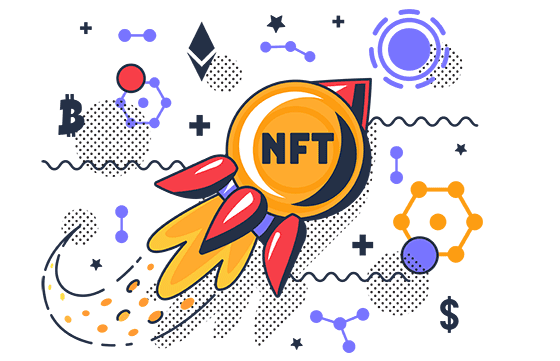The value of blockchain technology in the finance industry is undeniable, but it also offers digital marketers several benefits.
- Blockchain has affected activities across all industries, marketing departments included.
- Blockchain may be used to accomplish core marketing objectives, such as building brand recognition and fighting fraud.
- Blockchain tackles the consumer need for data protection and transparency.
What’s Blockchain, and how does it impact digital marketing?
Blockchain is better defined as a collection of cryptographic records, known as blocks, joined together without the need for third-party authentication. Blockchain has earned global praise for being the technology that has rendered Bitcoin possible. With Blockchain, all transactions are recorded and verified nearly in real-time. Marketers can exploit Blockchain’s beneficial qualities that consumers are striving for in today’s digital landscape: data protection and transparency.
Thanks to Blockchain, marketing and data transparency can take massive strides forward. Blockchain technology is developing quickly and impacting a vast range of industries. Although it is generally debated regarding finance and banking, its ramifications go well beyond traditional markets.
According to Statista, blockchain research is underway across several industries. In this research group, 40 % said they understand or study the technology; 39 % said they experimented with Blockchain or are building proofs of concept; 12 % are now implementing blockchain technology and utilizing it in their business activities.
Since Blockchain is associated with finance, it is not clear how digital marketing professionals can leverage its benefits. Blockchain has the potential to transform how digital marketers obtain and use data, how they communicate with consumers, and how they handle advertising.
Here’s a peek at the effect that Blockchain will have on digital marketing.
Keywords monitoring
Keyword tracking is challenging for marketers. Search engine algorithms frequently change, forcing marketers to adapt and change course continuously. Additionally, it isn’t easy to detect keywords on various devices and decipher local versus national searches. Organic SERP rankings are extremely difficult to grasp, and often marketers have to speculate or presume while reporting.
With Blockchain, marketers can have access to precise keyword statistics. A tracker designed on the Blockchain might account for all the contradictions marketers have to face when summarizing their efforts. Blockchain can detect keyword positions throughout devices, anywhere, and in seconds. Marketers can use this knowledge to produce more data-driven, reliable strategies.
Changes in social media
Companies like Sociall are transforming the way people perceive social media. This open network helps people communicate, learn and interact without the surveillance of traditional social media networks. Another platform, named WildSpark, plans to give its users “a new way to pay attention.” Basically, it monetizes viral content with the premise that only quality content will climb in rankings. It will allow content creators and curators to benefit from the value they generate to social media platforms directly.
These developments in social media offer people greater control and power over their data. They also award users for quality and viral content. For marketers, this represents a paradigm shift. However, such initiatives are not yet massively adopted. Marketers must determine how relevant these decentralized social networks will become and whether their consumer base can utilize them. In case they do, brands must be ready to provide full transparency.
While some marketers worry that they will miss out on data gathering, since it is reasonably straightforward to gather data from existing social media giants, it will merely shift the way marketers generate leads.
Better qualified leads
Currently, marketers gather data from several sources and bring them together to develop and execute campaigns. This strategy is far from optimal, and several initiatives operate out of inconsistent or incorrect information.
Because blockchain transactions are decentralized, marketers must go to the data collection source directly: the user. Marketers may compensate or persuade customers to obtain their data. Although this is a higher upfront expense, the ROI of such data acquisition will be evident on better campaign conversions since the data will be coming directly from users and not manipulated by intermediaries.
Consider this: customers who offer their data to your brand are likely already interested in your business. This makes scoring leads and conversion rate analysis more precise since opportunities are willing to be nurtured. Sure, it will take more work and costs up front, but marketers will collect way better-qualified leads using Blockchain
Combating ad-space fraud
Marketers know very well how frequently click fraud in advertisements happens. Adchain is an initiative that is seeking to combat this with adChain Register, a smart contract on the Ethereum blockchain. Ad impressions and clicks are authentic since they are on the trustworthy Blockchain. The organization aims to address the issue of lack of accountability and high levels of advertisement fraud. The platform offers end-to-end access for all data, a concept that doesn’t exist in the conventional ad space today.
Transparency for consumers
Ultimately, blockchain technology provides consumers unprecedented transparency. They will know who has their data and how the corporations obtained it. Marketers will benefit from this scenario since they will have access to more precise data to deploy campaigns with better conversion rates.
Businesses of all sizes are starting to adopt blockchain technology, and marketers must adapt and follow suit. It might feel like uncharted territory at first, but blockchain technology provides endless digital marketing application opportunities. The effort will be well worth it.
Get in touch with me on LinkedIn and follow me on Medium.















